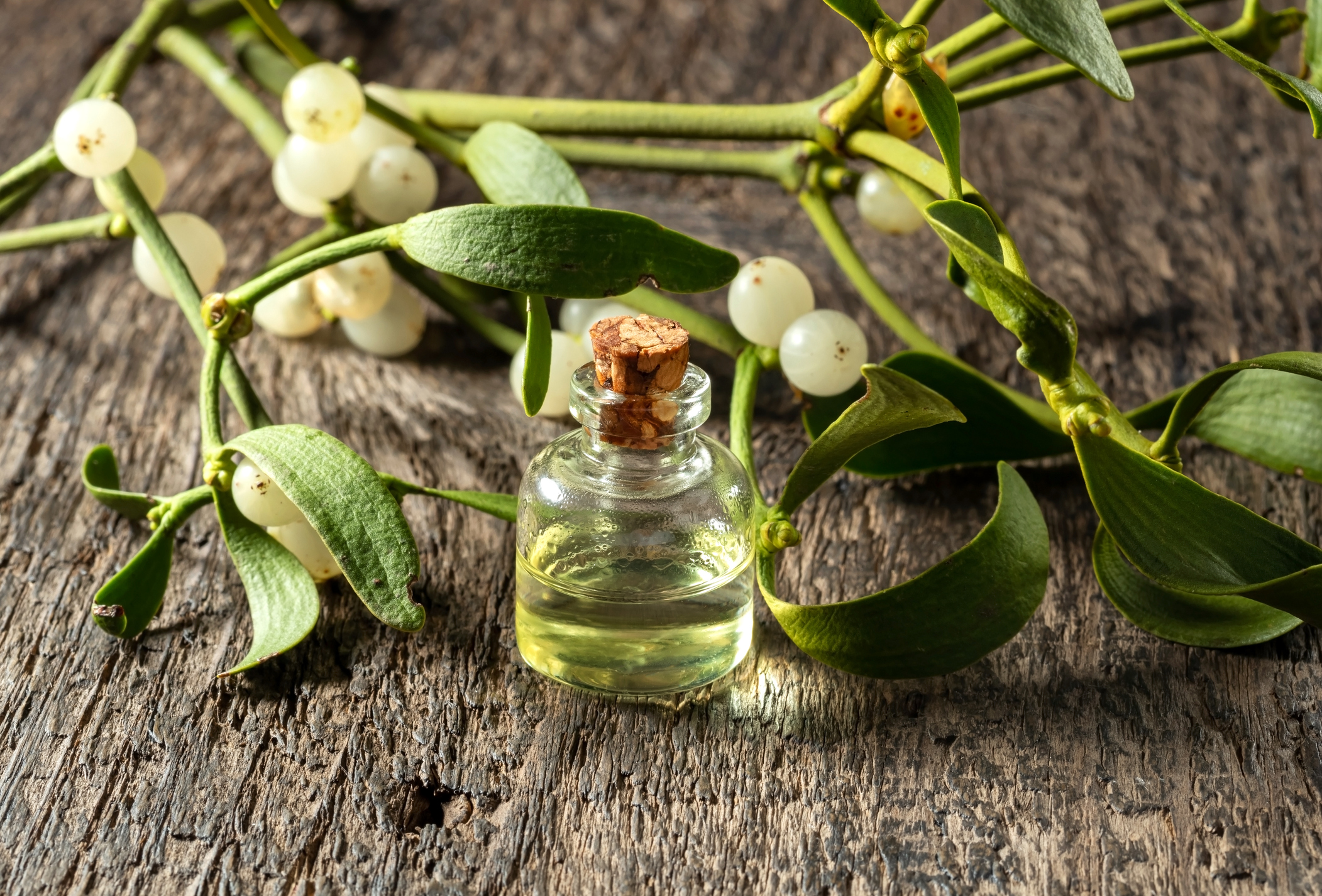Get Easy Health Digest™ in your inbox and don’t miss a thing when you subscribe today. Plus, get the free bonus report, Mother Nature’s Tips, Tricks and Remedies for Cholesterol, Blood Pressure & Blood Sugar as my way of saying welcome to the community!
Mistletoe: From Christmas tradition to cancer treatment

Hanging mistletoe is a popular Christmas holiday tradition.
But European mistletoe extract has been getting the attention of the medical community as an anticancer agent.
That’s right — the “kissing plant” could become an antidote to cancer.
Small studies have shown improved survival rates in people with pancreatic and breast cancer. It’s also been shown to reduce the adverse effects of chemotherapy.
Of course, more rigorous research is needed. And that’s just what researchers at Johns Hopkins University have been working on.
What is a Phase I trial?
Researchers at the Kimmel Cancer Center at Johns Hopkins have completed what is believed to be the first Phase I trial of intravenous mistletoe extract in the United States.
As its name implies, a Phase I trial is the very first step in bringing a potentially curative substance to market as a drug.
The purpose of a Phase I clinical trial is to test the safety, side effects, best dose, and timing of a new treatment. It may also test the best way to give a treatment (orally, by injection, etc.) and how the treatment affects the human body.
In the Johns Hopkins trial, 21 patients with advanced and treatment-resistant cancers received mistletoe extract (ME) intravenously three times per week. Their dose was gradually increased until either it stopped working, or it became toxic.
Patients were followed for an average of 15.3 weeks. The ideal dose was found to be 600mg.
The most common side effects reported were fatigue, nausea and chills — but patients reported that these were manageable.
What’s next for mistletoe extract?
Now that a Phase I trial has found European mistletoe extract to be safe and the side effects manageable, Phase II trials can be planned.
In Phase II, researchers look mainly at the efficacy of a substance. Does it work against the condition it’s being given for?
The good news is that, although Phase I was simply meant to test mistletoe extract’s safety, it’s already clear that it’s effective for some cancer patients. Tumors in three participants decreased in size and remained stable for two to five months.
Dr. Channing Paller, lead researcher, says that more research is also needed to help decipher exactly how mistletoe extract works to slow cancer growth, particularly in regard to cytokines that help kill off abnormal cells and encourage the growth of healthy cells.
Plant-based remedies abound
Like many other homeopathic remedies, mistletoe extract is not an FDA-approved remedy.
However, it is listed in the Homeopathic Pharmacopeia of the United States (HPUS). If you’re interested in the details, here are the criteria that must be met before a homeopathic preparation is designated an “official homeopathic drug” and included in the HPUS.
Plant-based homeopathic remedies have been used with success in countries outside the United States.
Always feel free to talk with your doctor if you’re considering use of an alternative treatment, or if you have questions.
Not all medical doctors are equally open or knowledgeable about homeopathic remedies, but if you have a doctor you trust, it’s always a good place to start. Integrative physicians may be more knowledgeable about complementary treatment therapies.
Remember, don’t eat any part of the mistle plant, and also keep it away from your pets, too. According to lovegarden.com, “Mistletoe is poisonous, although it is doubtful as to whether it will actually cause death. All parts of the plant are toxic (that’s berries, stem and leaves). The Mistletoe plant contains Phoratoxin and Viscotoxin, which are both poisonous proteins when ingested. With over 1500 varieties of Mistletoe in the world, some are more toxic than others.”
Editor’s note: Discover how to live a cancer prevention lifestyle — using foods, vitamins, minerals and herbs — as well as little-known therapies allowed in other countries but denied to you by American mainstream medicine. Click here to discover Surviving Cancer! A Comprehensive Guide to Understanding the Causes, Treatments and Big Business Behind Medicine’s Most Frightening Diagnosis!
Source:
U.S. study of intravenous mistletoe extract to treat advanced cancer — Eureka Alert
Phase I Trial of Intravenous Mistletoe Extract in Advanced Cancer — Cancer Research Communications
Mistletoe Extracts (PDQ®)–Patient Version — National Cancer Institute
Cytokines and Their Side Effects — American Cancer Society












